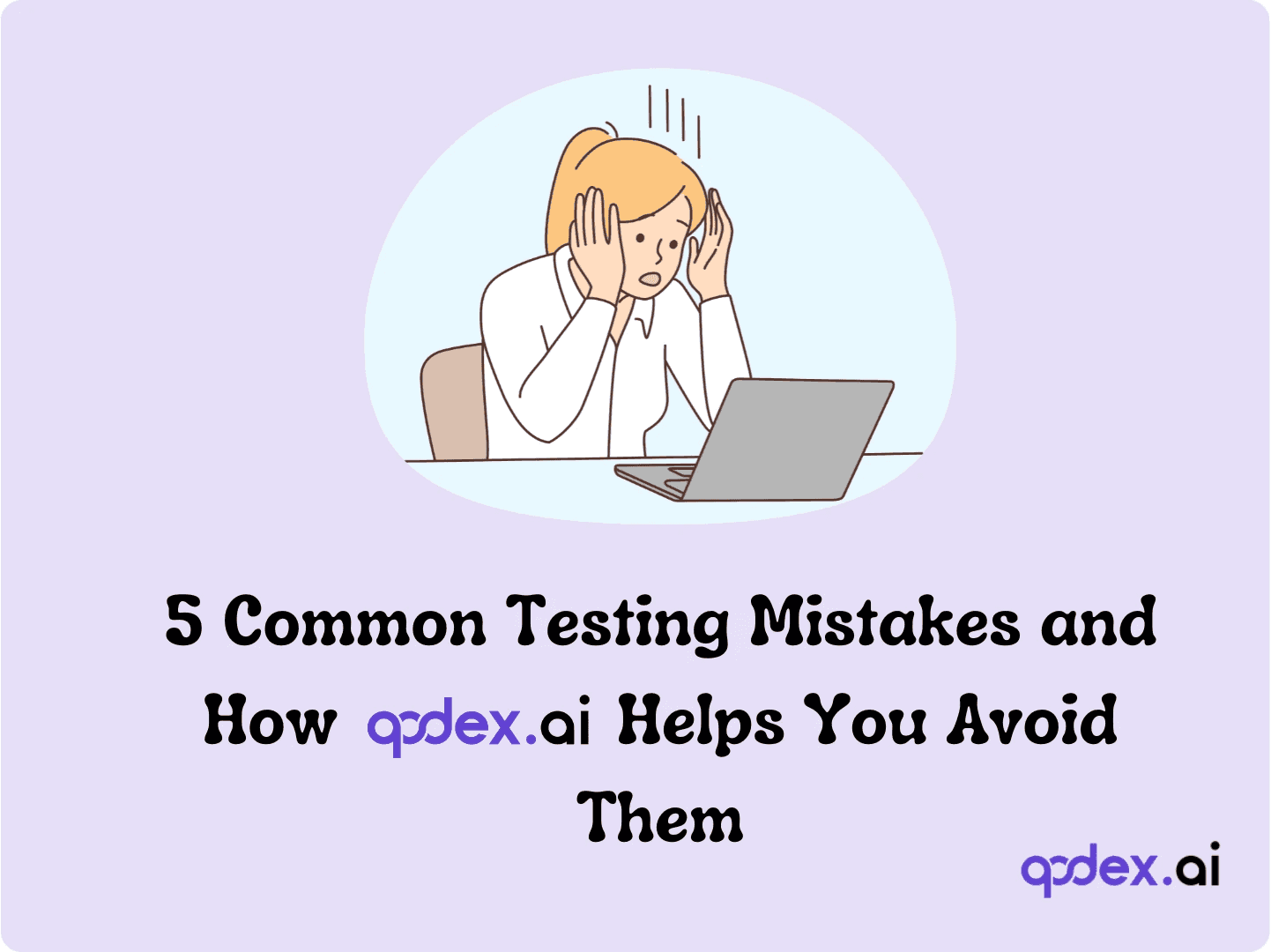Transition to Intelligent Test Automation Strategies
Introduction
Imagine being able to boost your testing efficiency, catch bugs early, and roll out updates faster than ever before.
That’s the promise of intelligent test automation, a blend of AI, machine learning, and advanced automation techniques that takes your testing process to the next level.
Why Intelligent Test Automation Matters
Modern software development demands speed and precision. Manual testing methods, though reliable, can’t keep up with the pace. Here’s where intelligent test automation comes into play:
Efficiency Boost: Automated tests run faster and more frequently, reducing your testing cycle times.
Early Bug Detection: AI-driven testing can spot issues early in the development process, saving you time and resources down the line.
Seamless Integration: Intelligent automation tools integrate smoothly with your existing tech stack, making the transition hassle-free.
Role of AI and Machine Learning
You might be wondering, what exactly makes test automation "intelligent"?
The answer lies in AI and machine learning. These technologies enable your testing tools to learn from past tests, adapt to new scenarios, and even predict potential problem areas in your software.
Adaptive Testing: AI can adjust test cases based on real-time data, ensuring that your tests remain relevant and effective.
Predictive Analysis: Machine learning algorithms analyze past test results to forecast where bugs are likely to occur, allowing you to focus your efforts where they’re needed most.
Automated Maintenance: Intelligent tools can update and maintain test scripts automatically, reducing the manual effort required to keep your tests up-to-date.
To fully appreciate the benefits of intelligent test automation, it's important to understand how intelligent automation works and what sets it apart from traditional methods.
Let's get into the core components and advantages of intelligent automation in the next section.
Understanding Intelligent Automation
What Makes Automation "Intelligent"?
Intelligent automation isn't just a buzzword—it's a transformative approach that combines traditional automation with the power of AI and machine learning. But what exactly sets it apart?
Building Blocks of Intelligent Automation
AI and Machine Learning:
Adaptive Learning: AI systems can learn from past test runs, adapting and optimizing test cases based on real-time data. This means your tests get smarter and more effective over time.
Predictive Analytics: Machine learning algorithms analyze historical data to predict where future bugs might appear, helping you focus your testing efforts where they're needed most.
Process Automation:
Automated Test Script Maintenance: One of the biggest challenges in test automation is maintaining test scripts as the software evolves. Intelligent automation tools can automatically update these scripts, reducing the manual workload and keeping tests up-to-date with minimal effort.
Test Suite Optimization: Intelligent systems can continuously refine and optimize your test suite, ensuring maximum coverage with minimal redundancy.
Data-Driven Testing:
Real-World Simulation: Intelligent automation uses real-world data to create more accurate and relevant test scenarios. This ensures that your software is tested against conditions it will actually encounter in production.
Comprehensive Test Data Management: Effective test data management is crucial for accurate testing. Intelligent tools manage test data efficiently, ensuring that the right data is always available when needed.
Benefits of Intelligent Automation
Efficiency and Speed:
Faster Test Execution: Automated tests can run 24/7, significantly speeding up your testing cycles and reducing time-to-market.
Quick Feedback Loops: Instant feedback from intelligent systems allows for rapid identification and resolution of issues, keeping your development process agile.
Enhanced Accuracy:
Reduced Human Error: By automating repetitive tasks, intelligent automation minimizes the risk of human error, ensuring consistent and reliable test results.
High Precision Testing: AI-driven tools provide high precision in identifying bugs and issues, leading to a more robust and reliable software product.
Cost-Effectiveness:
Lower Maintenance Costs: Automated maintenance of test scripts and data reduces the need for constant manual updates, saving both time and money.
Long-Term Savings: Although there may be an initial investment in intelligent automation tools, the long-term savings in time, effort, and resources are substantial.
Qodex Edge
Incorporating Qodex into your intelligent automation strategy provides a significant edge. Qodex is designed to enhance every aspect of your testing process with its advanced AI capabilities:
AI-Driven Test Generation: Qodex generates comprehensive test suites tailored to your specific needs, ensuring thorough coverage and efficiency.
Seamless Integration: Qodex integrates effortlessly with your existing tools and workflows, making the transition to intelligent automation smooth and effective.
Continuous Improvement: With Qodex, your test suites are continually refined and optimized, keeping pace with your evolving software.
Now that you understand the core components and benefits of intelligent automation, it’s time to delve deeper into how to build an effective intelligent automation testing strategy.
Let's explore the key steps and best practices to get the most out of your automation efforts.
Building an Intelligent Automation Testing Strategy
Crafting Your Path to Smarter Testing
Creating an intelligent automation testing strategy is more than just adopting new tools—it's about transforming your entire approach to testing. Here’s how you can build a strategy that leverages the full potential of intelligent automation.
Assemble the Right Team
Dedicated Automation Team:
Specialized Roles: Instead of relying on manual testers alone, assemble a dedicated team of automation experts. This includes test automation engineers, an automation architect, and AI specialists.
Continuous Learning: Encourage continuous learning and upskilling within your team to stay abreast of the latest AI and automation trends.
Strong Leadership:
Automation Architect: An experienced automation architect can design and oversee the implementation of your intelligent automation strategy, ensuring all components work seamlessly together.
Collaboration: Foster a culture of collaboration between developers, testers, and AI specialists to integrate intelligent automation effectively.
Select the Right Tools
Tool Selection:
Compatibility: Choose tools that integrate well with your existing tech stack and development workflows. This reduces friction and accelerates adoption.
AI Capabilities: Look for tools with robust AI and machine learning features, like Qodex, which can provide predictive analytics, adaptive learning, and automated maintenance.
Scalability:
Future-Proof: Ensure the tools you select can scale with your needs, accommodating growing test suites and more complex applications.
Design Intelligent Test Cases
Manual to Automated:
Start with Manual Tests: Begin by identifying critical manual test cases that can be automated. Use these as a foundation to build automated scripts.
Refine and Optimize: Continuously refine and optimize your test cases using AI to ensure they remain relevant and effective.
Focus on High-Impact Areas:
Identify Key Areas: Focus your automation efforts on areas with the highest impact on quality and efficiency, such as regression testing, load testing, and performance testing.
Implement Best Practices
Good Test Design:
Prevent Recurring Errors: A well-designed test plan helps prevent recurring errors and ensures purposeful, efficient testing.
Comprehensive Coverage: Ensure your test suite covers all critical functionalities and scenarios.
Regular Maintenance:
Automated Updates: Use intelligent tools like Qodex to automatically update and maintain your test scripts, keeping them in sync with your evolving software.
Continuous Improvement: Regularly review and improve your test cases to adapt to new features and changes in the software.
Leverage Data and Analytics
Data-Driven Insights:
Utilize Analytics: Leverage analytics to gain insights into your testing process. Identify patterns, trends, and areas for improvement.
Predictive Analysis: Use predictive analysis to anticipate potential issues and focus your testing efforts accordingly.
Feedback Loops:
Instant Feedback: Implement instant feedback mechanisms to quickly identify and resolve issues, keeping your development process agile.
Incorporating Qodex into your strategy amplifies these best practices. Qodex’s AI-driven tools streamline test case generation, maintenance, and optimization, providing continuous test coverage and insightful analytics.
Smart Automation: Qodex’s intelligent algorithms ensure your test suites are always up-to-date and optimized.
Seamless Integration: Qodex integrates with your existing tools, making the transition to intelligent automation smooth and effective.
With a solid intelligent automation testing strategy in place, you’re set to transform your testing processes.
Next, we’ll explore whether investing in intelligent automation testing is worth it, and how it can empower your business to achieve new heights.
Building an Intelligent Automation Testing Strategy
Crafting Your Path to Smarter Testing
Creating an intelligent automation testing strategy is more than just adopting new tools—it's about transforming your entire approach to testing. Here’s how you can build a strategy that leverages the full potential of intelligent automation.
Assemble the Right Team
Dedicated Automation Team:
Specialized Roles: Instead of relying on manual testers alone, assemble a dedicated team of automation experts. This includes test automation engineers, an automation architect, and AI specialists.
Continuous Learning: Encourage continuous learning and upskilling within your team to stay abreast of the latest AI and automation trends.
Strong Leadership:
Automation Architect: An experienced automation architect can design and oversee the implementation of your intelligent automation strategy, ensuring all components work seamlessly together.
Collaboration: Foster a culture of collaboration between developers, testers, and AI specialists to integrate intelligent automation effectively.
Select the Right Tools
Tool Selection:
Compatibility: Choose tools that integrate well with your existing tech stack and development workflows. This reduces friction and accelerates adoption.
AI Capabilities: Look for tools with robust AI and machine learning features, like Qodex, which can provide predictive analytics, adaptive learning, and automated maintenance.
Scalability:
Future-Proof: Ensure the tools you select can scale with your needs, accommodating growing test suites and more complex applications.
Design Intelligent Test Cases
Manual to Automated:
Start with Manual Tests: Begin by identifying critical manual test cases that can be automated. Use these as a foundation to build automated scripts.
Refine and Optimize: Continuously refine and optimize your test cases using AI to ensure they remain relevant and effective.
Focus on High-Impact Areas:
Identify Key Areas: Focus your automation efforts on areas with the highest impact on quality and efficiency, such as regression testing, load testing, and performance testing.
Implement Best Practices
Good Test Design:
Prevent Recurring Errors: A well-designed test plan helps prevent recurring errors and ensures purposeful, efficient testing.
Comprehensive Coverage: Ensure your test suite covers all critical functionalities and scenarios.
Regular Maintenance:
Automated Updates: Use intelligent tools like Qodex to automatically update and maintain your test scripts, keeping them in sync with your evolving software.
Continuous Improvement: Regularly review and improve your test cases to adapt to new features and changes in the software.
Leverage Data and Analytics
Data-Driven Insights:
Utilize Analytics: Leverage analytics to gain insights into your testing process. Identify patterns, trends, and areas for improvement.
Predictive Analysis: Use predictive analysis to anticipate potential issues and focus your testing efforts accordingly.
Feedback Loops:
Instant Feedback: Implement instant feedback mechanisms to quickly identify and resolve issues, keeping your development process agile.
Incorporating Qodex into your strategy amplifies these best practices. Qodex’s AI-driven tools streamline test case generation, maintenance, and optimization, providing continuous test coverage and insightful analytics.
Smart Automation: Qodex’s intelligent algorithms ensure your test suites are always up-to-date and optimized.
Seamless Integration: Qodex integrates with your existing tools, making the transition to intelligent automation smooth and effective.
With a solid intelligent automation testing strategy in place, you’re set to transform your testing processes.
Next, we’ll explore whether investing in intelligent automation testing is worth it, and how it can empower your business to achieve new heights.
Is it Worth Investing in Intelligent Automation Testing?
ROI of Smarter Testing
Investing in intelligent automation testing isn’t just a leap into the future—it’s a strategic move that offers substantial returns. Let’s break down why this investment is worth every penny.
Empowering Your Team
Saving Manual Testing Resources:
Efficiency Gains: By automating repetitive and routine tasks, you free up your testers to focus on more complex and creative aspects of testing. This boosts productivity and job satisfaction.
Skill Utilization: Automation allows your team to use their skills more effectively, solving challenging problems instead of getting bogged down by mundane tasks.
Configuration and Master Data:
Streamlined Setup: Intelligent automation tools like Qodex simplify the process of setting configurations and creating master data, making it easier for manual testers to set up and start testing quickly.
Delivering Quality Software
Establishing Best Practices:
Consistent Standards: Intelligent automation enforces consistent testing standards across your projects, ensuring high quality and reliability.
Continuous Improvement: With automated feedback loops, your testing processes continuously improve, leading to better software over time.
Supporting Digital Transformation:
Modern Solutions: Intelligent automation supports your digital transformation initiatives by integrating seamlessly into modern development workflows and technologies.
Scalable Testing: As your projects grow, intelligent automation scales effortlessly, maintaining high testing standards without additional overhead.
Strategic Integration into SDLC
Proactive Testing:
Early Bug Detection: Integrating intelligent automation into the Software Development Life Cycle (SDLC) helps detect and fix bugs early, reducing the cost and effort of post-release fixes.
Continuous Integration: Automated tests run continuously as part of your CI/CD pipelines, ensuring that every code change is tested and validated before it reaches production.
Business Growth:
Competitive Advantage: Delivering high-quality software faster gives you a competitive edge, helping your business grow and succeed in the market.
Customer Satisfaction: Reliable software leads to higher customer satisfaction, repeat business, and positive word-of-mouth.
Cost-Benefit Equation
Initial Investment vs. Long-Term Savings:
Upfront Costs: While the initial investment in intelligent automation tools and setup might seem high, the long-term savings in time, effort, and resources make it a cost-effective choice.
Reduced Maintenance: Automated maintenance of test scripts and data reduces ongoing costs, freeing up resources for other critical tasks.
Careful Tool Selection:
Maximizing ROI: Choosing the right tools, like Qodex, ensures you get the maximum return on your investment. Qodex’s advanced AI capabilities streamline your testing process, making it both efficient and effective.
Investing in Qodex amplifies these benefits, providing an intelligent automation solution that’s both powerful and user-friendly. With Qodex, you get:
Comprehensive Coverage: Ensure thorough testing with Qodex’s exhaustive test suites.
Real-Time Insights: Gain valuable insights with real-time analytics and feedback.
Seamless Integration: Easily integrate Qodex into your existing workflows for a smooth transition.
Ready to revolutionize your testing strategy? Explore Qodex today!
The future of software testing is intelligent, efficient, and automated. As you consider your next steps, remember that investing in intelligent automation testing not only enhances your testing capabilities but also drives business growth.
Conclusion
Transitioning to intelligent test automation is a game-changer for modern software development. By leveraging AI and machine learning, you can enhance efficiency, reduce costs, and improve the quality of your software.
From assembling a dedicated team and selecting the right tools to implementing best practices and integrating intelligent automation into your SDLC, each step brings you closer to achieving superior testing outcomes.
Qodex stands out as a powerful ally in this journey, offering comprehensive test coverage, real-time insights, and seamless integration with your existing workflows. By investing in Qodex, you're not just adopting a tool—you're embracing a smarter, more efficient approach to testing.
Ready to elevate your testing strategy and achieve unparalleled results? Explore Qodex today!
By implementing these strategies and leveraging advanced tools like Qodex, you can ensure that your software is not only robust and reliable but also delivered faster and more cost-effectively. Embrace the future of intelligent test automation and set your team up for success.
Frequently Asked Questions
Why should you choose Qodex.ai?
Qodex.ai simplifies and accelerates the API testing process by leveraging AI-powered tools and automation. Here's why it stands out:
- AI-Powered Automation
Achieve 100% API testing automation without writing a single line of code. Qodex.ai’s cutting-edge AI reduces manual effort, delivering unmatched efficiency and precision.
- User-Friendly Platform
Effortlessly import API collections from Postman, Swagger, or application logs and begin testing in minutes. No steep learning curves or technical expertise required.
- Customizable Test Scenarios
Whether you’re using AI-assisted test generation or creating test cases manually, Qodex.ai adapts to your needs. Build robust scenarios tailored to your project requirements.
- Real-Time Monitoring and Reporting
Gain instant insights into API health, test success rates, and performance metrics. Our integrated dashboards ensure you’re always in control, identifying and addressing issues early.
- Scalable Collaboration Tools
Designed for teams of all sizes, Qodex.ai offers test plans, suites, and documentation that foster seamless collaboration. Perfect for startups, enterprises, and microservices architecture.
- Cost and Time Efficiency
Save time and resources by eliminating manual testing overhead. With Qodex.ai’s automation, you can focus on innovation while cutting operational costs.
- Continuous Integration/Delivery (CI/CD) Compatibility
Easily integrate Qodex.ai into your CI/CD pipelines to ensure consistent, automated testing throughout your development lifecycle.
How can I validate an email address using Python regex?
You can use the following regex pattern to validate an email address: ^[a-zA-Z0-9._%+-]+@[a-zA-Z0-9.-]+\.[a-zA-Z]{2,}$
What is Go Regex Tester?
Go Regex Tester is a specialized tool for developers to test and debug regular expressions in the Go programming environment. It offers real-time evaluation of regex patterns, aiding in efficient pattern development and troubleshooting
Discover, Test, & Secure your APIs 10x Faster than before
Auto-discover every endpoint, generate functional & security tests (OWASP Top 10), auto-heal as code changes, and run in CI/CD - no code needed.
Related Blogs


